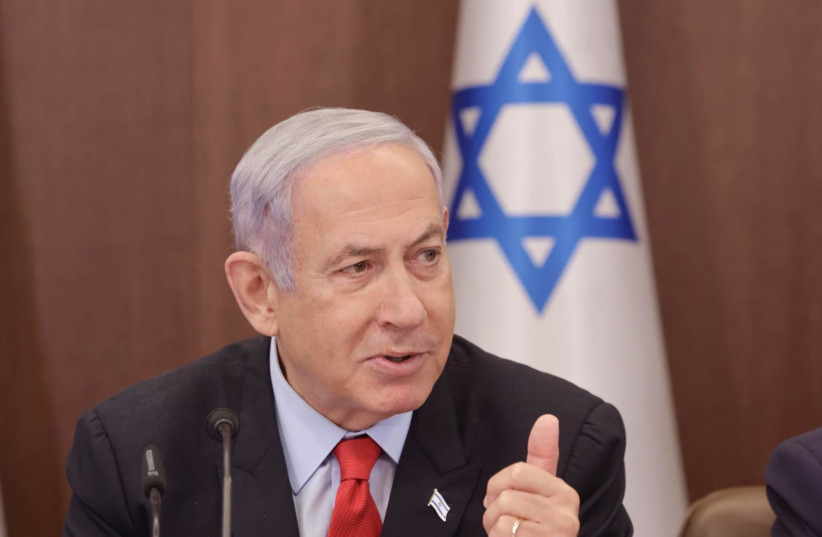Prime Minister Benjamin Netanyahu violated his corruption trial conflict of interest agreement by promoting Judicial Selection Committee reforms on Sunday, and the Attorney-General's Office should work to prevent the Israeli leader's involvement in the judicial reform matters, the NGO Movement for Quality Government in Israel (MQG) said in a letter to Netanyahu and Attorney-General Gali Baharav-Miara on Monday.
MQG said that Netanyahu had again broken his conflict of interest agreement during an interview with Bloomberg published on Sunday night. The prime minister had told the American outlet that the next judicial reform that he would pursue would likely be the changes to the Judicial Selection Committee.
"The attorney-general has the duty to act and prevent any activity in harsh opposition to the agreement," MQG said on Monday.
Where is Netanyahu's conflict of interest in judicial reform?
Netanyahu had formed a government in 2020 under the condition of a conflict of interest agreement organized by Baharav-Miara's predecessor, MQG reminded. The Likud leader faced trial for three charges of corruption, Case 1000, Case 2000, and Case 4000. His powers were restricted to prevent concern of influence in his own trial -- including the appointment of judges, law enforcement officers, and other legal officials.
MQG argued that alterations to the Judicial Selection Committee, which would change the voting rules and composition to give elected officials and in particular the coalition a majority on the panel, would allow Netanyahu to appoint justices and a High Court of Justice president who might preside over any criminal appeal. High Court President Esther Hayut and Justice Anat Baron are set to retire in October.

"The prime minister accused of serious crimes announces that he is interested 'only' creating control for himself over the vote of a High Court president and justice who will hear his criminal appeal and after that ‘we'll stop,’" said MQG attorney Hidi Negev.
Baharav-Miara had warned Netanyahu in February that his conflict of interest agreement had still applied, and prevented him from involving himself in the judicial reform. On March 24, she sent a letter to him saying that a speech he gave the day before, in which he announced his involvement in the reform, violated the agreement.
On April 19, the Democracy Fortress group filed a petition to the High Court calling for Netanyahu's ousting from government or an order to prevent him from involvement in the reform over his conflict of interest violation. On July 13 the High Court agreed to hear the petition. A hearing date was initially set to September 12, but was displaced for the reasonableness standard law hearing, and a new date has yet to have been set.
